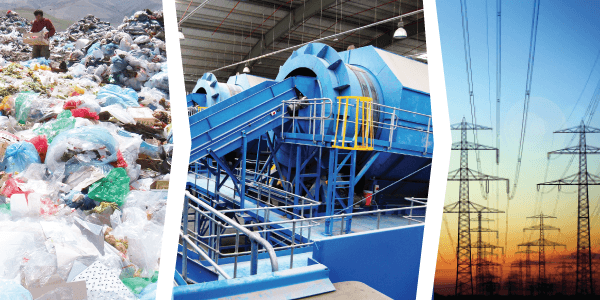Democracy & Governance
Waste-to-Energy: How Nigeria can apply the Reppie model in Ethiopia -By Konye O. Obaji


Waste to energy
Trash can be Nigeria’s new oil – Konye Obaji
What if Nigeria could turn its trash into electrical energy, clean water, and bricks? If it could, the country would fix its electrical supply problems, create millions of steady jobs, solve its portable water problems, and boost its infrastructure and housing cost problems. This would be amazing. If only it were possible to utilize trash in turning the country around.
Indeed it is possible. Yes, Nigeria can convert its massive trash fields across the country into a resource capable of generating electricity, clean water, and affordable bricks. We need to look no further than Ethiopia.
In Ethiopia, Reppie has shown us how it can be done. The Reppie Waste-to-Energy facility-started full construction in September of 2014. Reppie Waste-to-Energy facility now processes over 1,400tons of waste every day and produces over 185,000,000KWh of electricity to the Ethiopian national grid.
Waste-to-energy uses trash as a fuel for power generation. Similar to other power plants (just using trash rather than other fuels like coal, oil, or natural gas), the fuel is burned in an environmentally sustainable manner, in a combustion chamber to heat tubes of water in boiler walls. The water is heated until it turns into steam, which is then used to drive a turbine generator that produces electricity. Imagine having these facilities built in Nigeria’s slums and ghettos. Imagine a situation in which the trash and dirt around Nigeria’s slums and ghettos become transformational economic resources.
The 1,400 tons of trash burned a day powers 25% of Addis Ababa’s homes (Over 3 million people). In the process, 30 million liters of clean water is recovered. And out of the burning ash, 3 million bricks are made. The implications are tremendous for power, job creation, infrastructure and housing, and portable drinking water.
Yes, trash can be Nigeria’s new oil
The Reppie Waste-to-Energy Plant is Africa’s first. Can and should Nigeria follow Ethiopia’s lead? I cannot imagine why not. Nigeria has a trash problem. Nigeria has an electrical-power problem. Nigeria has a portable water problem. Nigeria has housing cost and infrastructure problem. Nigeria has a job creation problem. The Reppie Waste-to-Energy approach addresses all of these problems. The pledge to adopt the Reppie Waste-to-Energy model should be on the manifesto of every presidential aspirant for 2019.
Waste incineration is a popular energy source in Europe; there are 126 plants in France, 121 in Germany, and 40 in Italy. But no plants have been constructed in Africa — until now.
According to United Nations Environmental Program, Reppie adopts modern back-end flue gas treatment technology to drastically reduce the release of heavy metals and dioxins produced from the burning.
For Nigerian cities lacking a large amount of land, UNEP described waste-to-energy incineration as a quadruple win: “it saves precious space, generates electricity, prevents the release of toxic chemicals into groundwater, and reduces the release of methane — a potent greenhouse gas generated in landfills — into the atmosphere.”
The Ethiopian government partnered with renewable energy and waste management company Cambridge Industries, state-owned engineering company China National Electric Engineering, and Danish engineering firm Ramboll to build the plant.



















